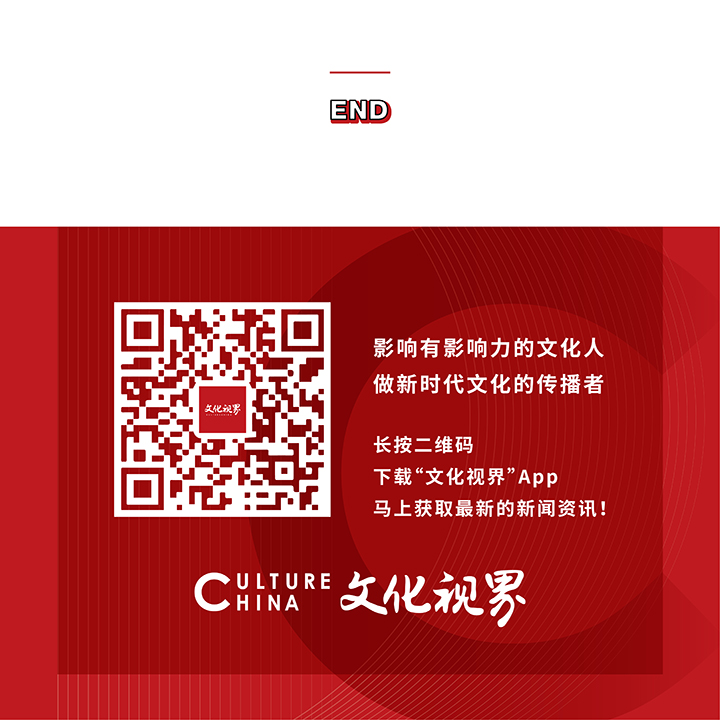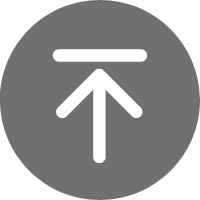

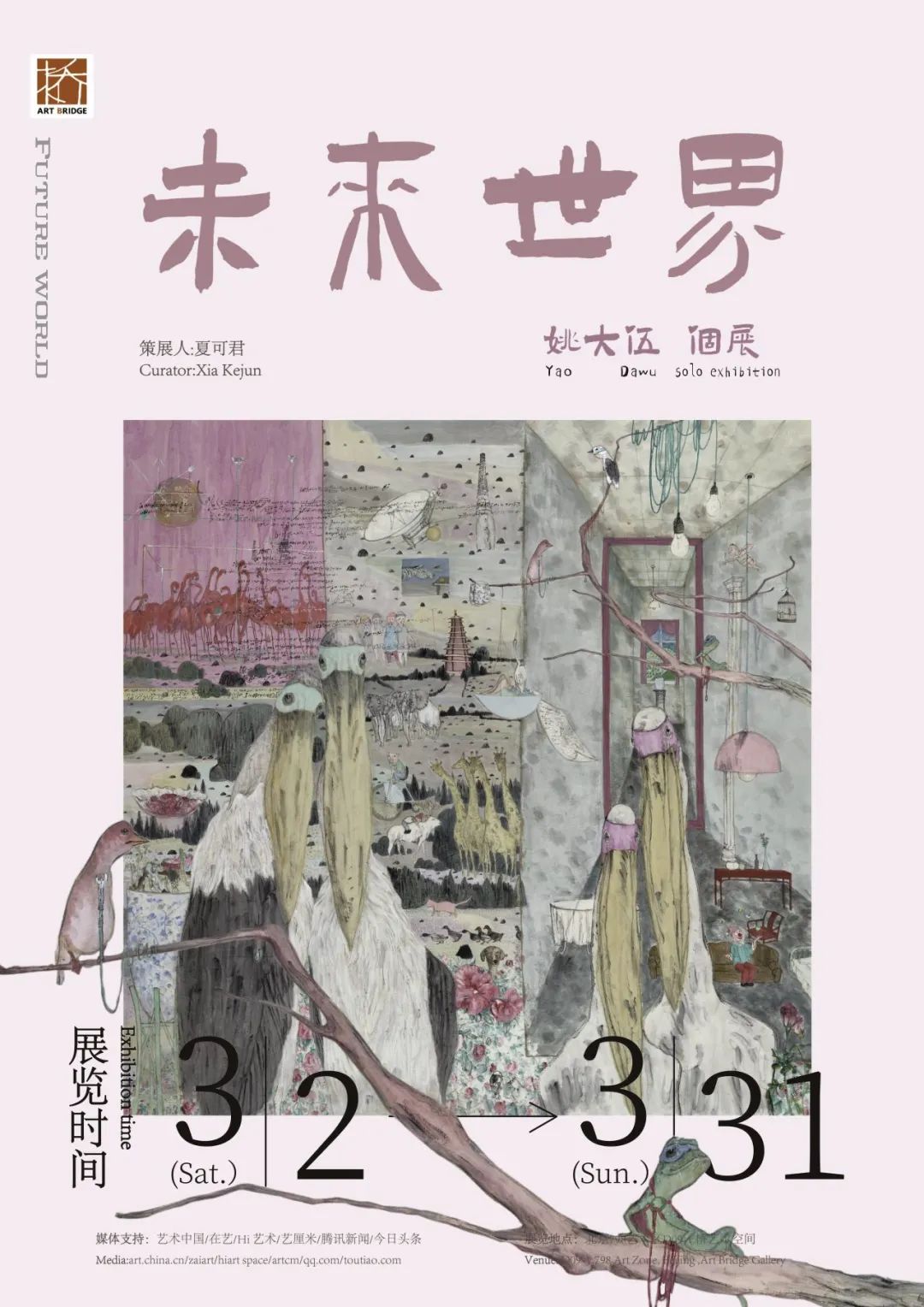
《未来世界》
Future world
艺术家:姚大伍
Artist: Yao Dawu
策展人:夏可君
Curator:Xia Kejun
主办单位:桥艺术空间
Organizer:Art Bridge Gallery
开幕时间:2024年03月02日下午3:00
Opening:Mar.2,2024 at 3:00 p.m
展览时间:2024年03月02日—2024年03月31日
Exhibition Date:Mar.2,2024 — Mar.31,2024
展览地点:北京798艺术区D09-1桥艺术空间
Venue: D09-1,798 Art Zone,Beijing,Art Bridge Gallery
媒体支持:艺术中国/在艺/Hi艺术/艺厘米/腾讯新闻/今日头条
Media:art.china.cn /zaiart /hiart space /artcm /qq.com /toutiao.com
姚大伍的绘画文本:未来世界的超现实组合
所谓的笔墨当随时代,在于水墨艺术必须结合两个维度,一方面是重写个体生命的历史图像志,是个体去发现自己内在心路历程的生命历史,甚至是带有前世记忆痕迹的某种感动与感应;另一方面是面对时代的精神危机,乃至于科学技术,赋予新的反思形态与艺术语言,只有面对生命困境与技术挑战的艺术才是真切的表达。前者关涉到艺术家的个体修养与历史厚度,后者则关涉到艺术家的生命良知与艺术想象力;没有前者,水墨缺乏空间的纵深感,没有后者,水墨缺乏时间的吸纳力;一个成熟的艺术家,必然形成时空的个体化建构。
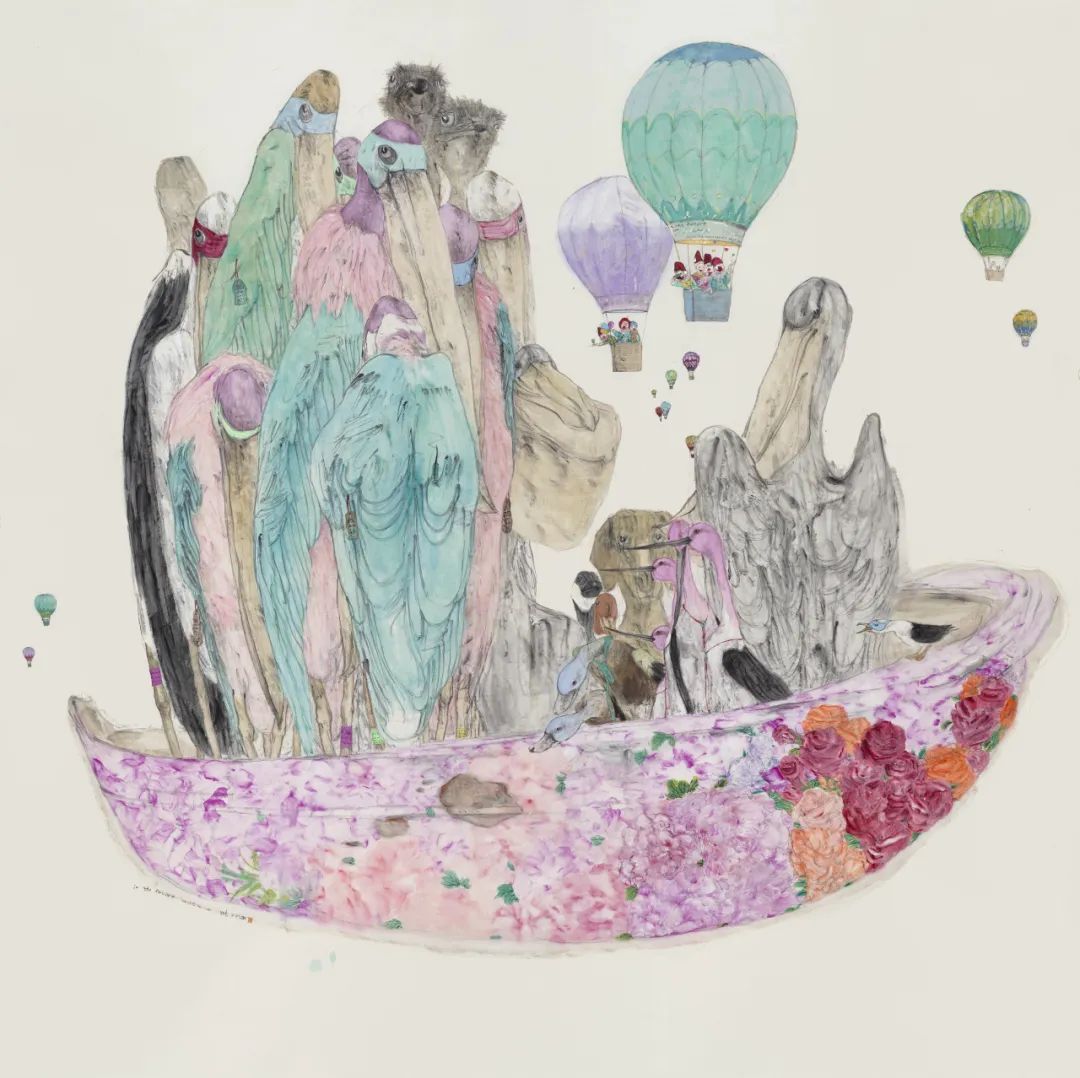
▲《未来》Future
纸本水墨 Ink on paper
200x200cm 2024年
我们在姚大伍先生最近几年的一些代表作品,尤其是2018年只身沿佛教传入中国路线,寻找早期佛教的脉络与线索而创作出的巨作《巴米扬大佛造像记》,全然放弃一切既有的惯习手法,彻底面对超越生命的历史痕迹,打开心扉而诉说出个体的心迹,让不同时代的历史图像与个体的感悟,跨时空的并置起来,素描与涂绘,水墨与油性,即兴与拼贴,各种创作方法,以不可思议却又富有内在感应的组合起来,水墨彻底吸纳了艺术史的经典图像与世界性的生命心迹。
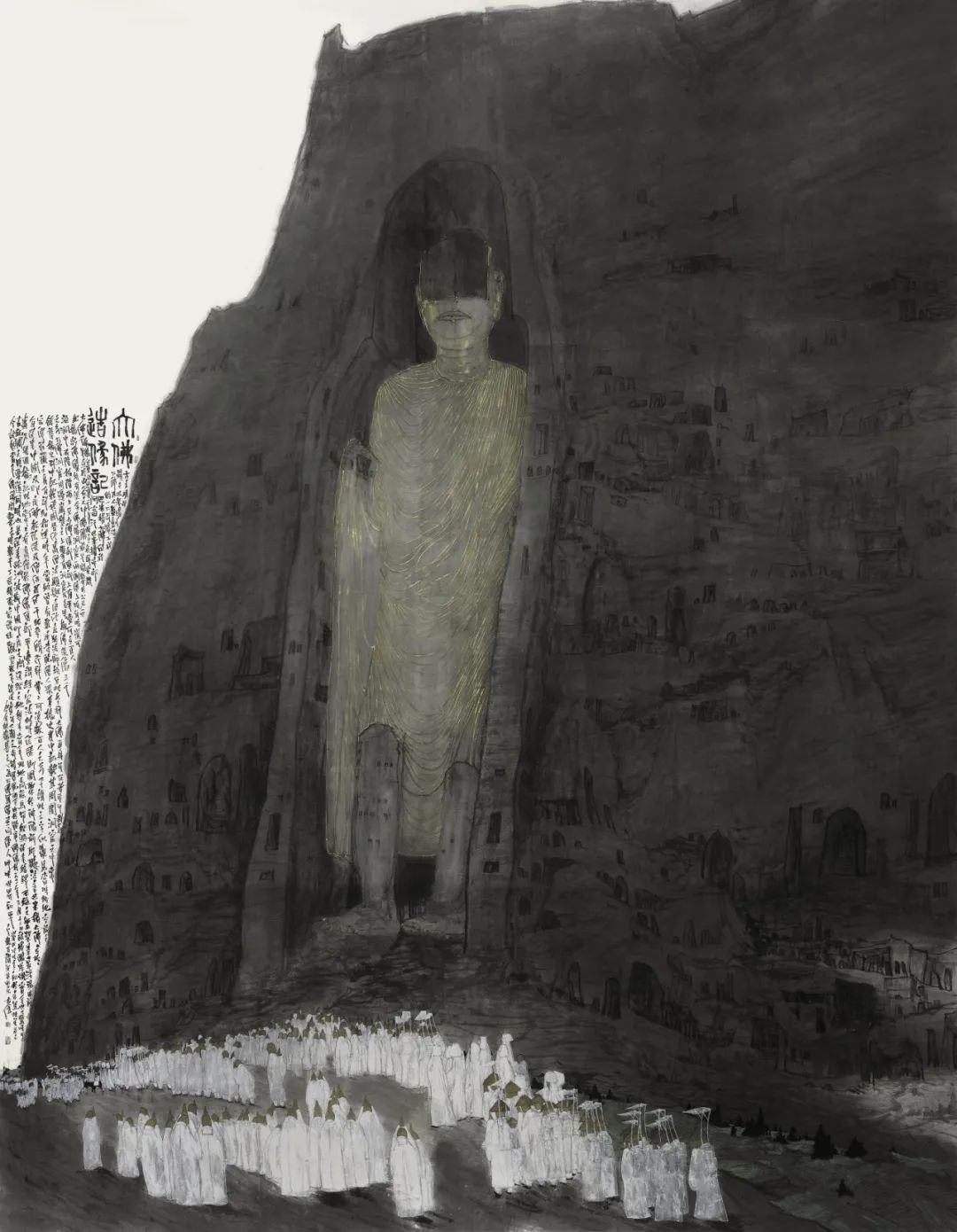
▲《大佛造像记》 The Great Buddha Statue
纸本水墨 Ink on paper
370x300cm 2018年
而最近新作《混淆的时间-痕迹》,把混杂现代性的各种图像与生命的危机状态,以“鹳鸟”为符号的面具形象反向凝视世界,就把人性的欲望,当代前沿科技,物理数学公式,自然的花园,室内的日常空间,明媚的小丑与马斯克的气球,以时空的穿越与天马行空的想象力,明亮的色彩与精彩的线条,建构起一个超现实的未来世界,儿童乐园式的未来世界,表达了疫情之后生命“重活”与“再生”的渴望,赋予了水墨艺术全然的新境界。
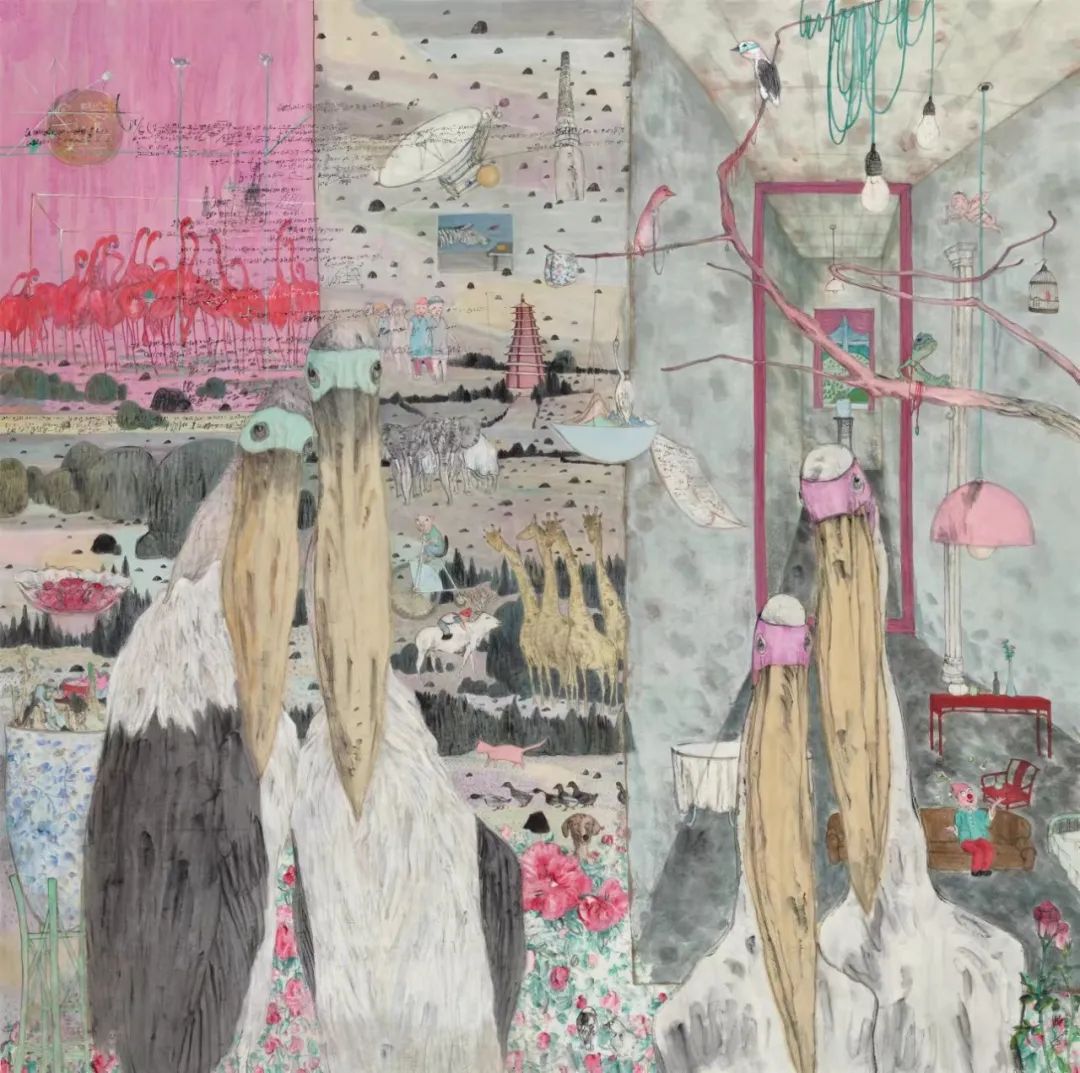
▲《混淆的时间-痕迹》 Confused Time-Traces
纸本水墨 Ink on paper
200x200cm 2024年
本次展览的两组系列作品,让我们看到了大伍先生独特的画面建构逻辑与精神反思的深度,即,绘画不仅仅是绘画,水墨绘画乃是要回到世界的文本性与历史性,具有跨时空的综合性,把可视性与可读性内在结合,走向反思性与世界感,生命的面具性与讽喻的图像学,并书写出自己的生命之书与世界之书,建构起历史性的绘画文本与超现实的世界图像,姚大伍先生对于水墨的突破与贡献,是艺术宣告着自己的第二次出生。

▲《面具》Masks
纸本水墨 Ink on paper
144x734cm 2023年
正是从绘画的文本性出发,姚大伍先生的绘画才摆脱了各种既有的现代性水墨范式,因为中国古代的水墨艺术,并非单独一幅画的创作,本来就是“互文本”,是绘画与书法,图像与诗歌,装裱与题签,收藏与互文,等等的组合,中国水墨作品是可以延展与生长的,不可能被一幅画限制,不可能被一种风格所束缚,而是要不断地扩展,伴随个体生命与古代的神交以及历史文脉的共时书写。这也要求艺术家有着突破自我或小我的勇气,进入历史的大文本。2018年,大伍实现了个体酝酿已久的心志,沿着玄奘去往阿富汗,追寻玄奘大师西域求佛的心路历程,穿越姑墨古国,重新回顾自然与历史的双重痕迹,在沙漠的干燥与心灵的润泽之间,重建个体与佛性的生命感应,形成了坚韧与广阔的新视野,前者面对艰苦的生存环境,后者则是化解人性无数幻象的虚妄,这也导致大伍彻底改变了之前水墨绘画的观念与方法,把大千图像拼贴起来,人类信仰的足迹,各种经典的符号,以图像志与图像集的方式,同时并置在一幅作品上,似乎历史的内在画卷及其卷轴的形式感,被同时打开了。
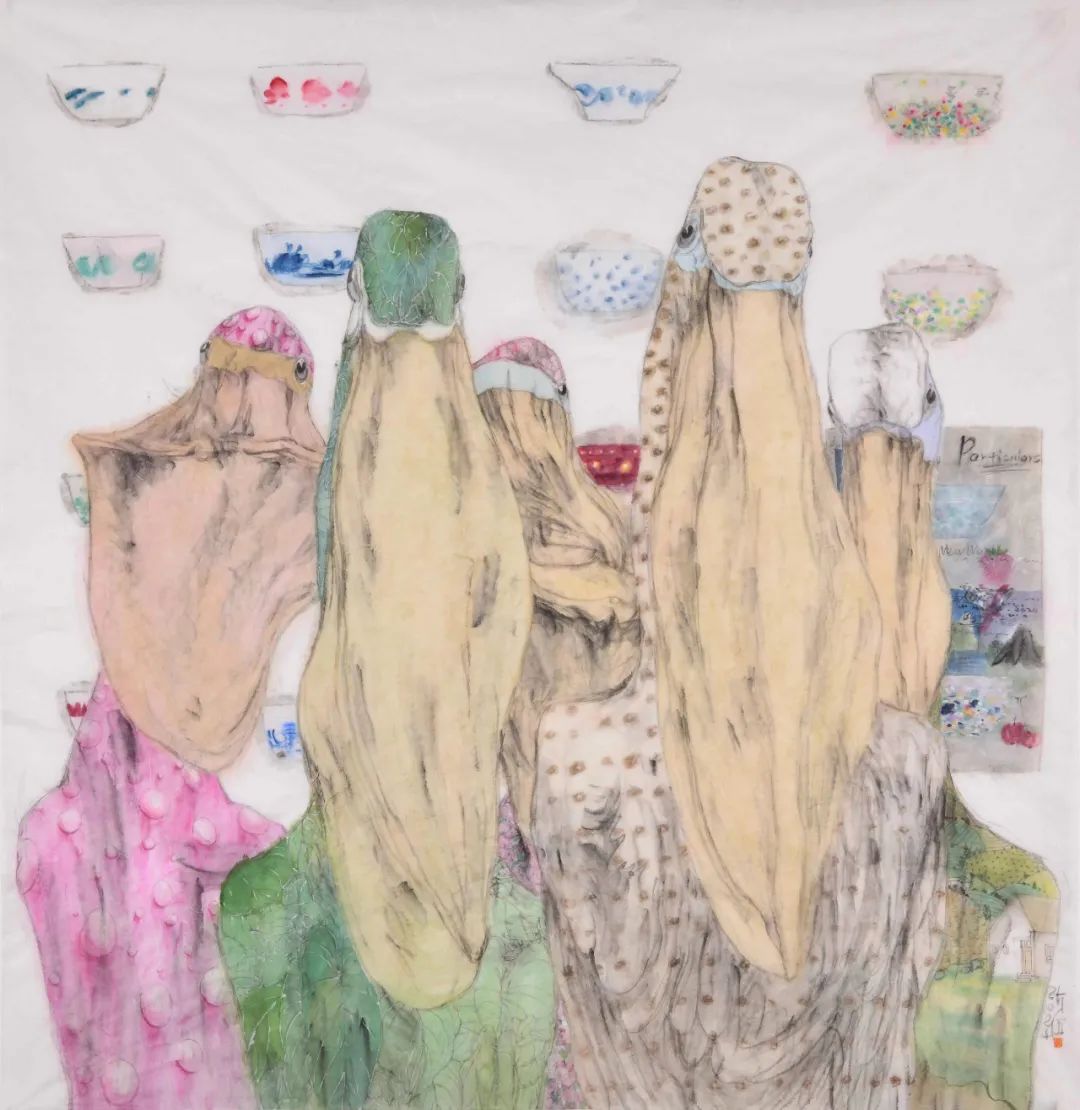
▲《数字孪生》 Digital Twin
纸本设色 Ink and colour on paper
200x200cm 2024年
自此,世界是一本书,心迹也是一本书,绘画就是去“组合”不同历史的生命行迹与隐秘心迹,不同的场景,不同的时空,不同的文化,汉字与图像,地图与数学,佛像与飞船,大地与天空,都被并置起来,因此,绘画生成为世界之书,生命之书,未来之书。
广阔的吸纳与坚韧的步伐,就重塑了生命的品格与绘画的风格,也对应于我们这个“混杂现代性”的时代处境。中国过去40年的改革开放,把中国从传统农业文明为主导走向现代主义的都市化与个体化,并且进入全球化的网络虚拟时代,因此,水墨绘画就不仅仅是传统的笔墨工夫,也不仅仅是个体化的艺术风格,还要吸纳网络时代的时空并置与自由穿越,但又不能仅仅是视觉的复制,而是要带入个体独有的生活行迹与生命心迹,离开了独一性的个体性笔痕书写,艺术也丧失了价值。
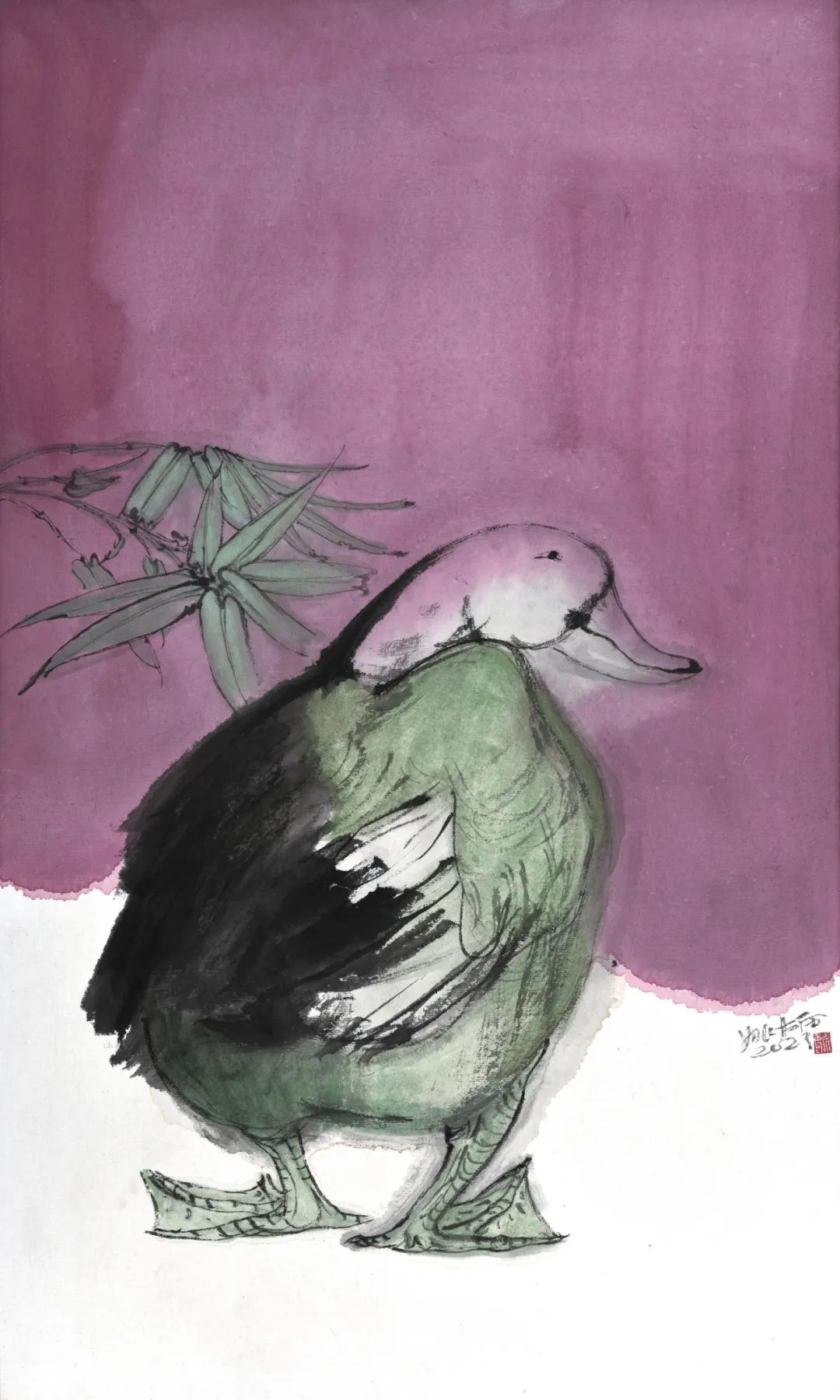
▲《表现与尝试—01》
Expression and Experimentation—01
纸本水墨 Ink on paper
64.5x39cm 2023年
水墨艺术必须激活自己的吸纳性与文本性,从绘画转向文本,带着如此的开阔性与重新唤醒的活力,以及对于绘画之为文本性与世界性的理解,大伍先生面对过去三年的疫情危机时,就看到了世界的另一面,那是通过飞翔的鹳鸟来暗示生命的病理学症候,给这些动物生命戴上面罩,如同过去三年的人性都被迫戴上口罩,在此生命形象的叠加上,象征着生命已经丧失了本来面目,我们都是面具人,我们必须想象另一种的人性。艺术家通过把这些鹳鸟与不同的场景叠加,让我们想到巴洛克时代荷兰画家博斯的《人间乐园》,这也是带有讽喻的百科全书式世界图景,把生命不同状态的场景加以同时并置。大伍在疫情期间的鹳鸟系列绘画,把很多的鹳鸟与人类的日常场景并置,看似突兀,实际上是为了传达世界的共生感,人类生命与自然生命的不可分离,这些无家可归的鹳鸟,才是生命的真相!无论是鹳鸟与儿童天真场景的并置,还是对于传统花鸟画与人物画的奇特并置,其实都是之前绘画文本性的表现。
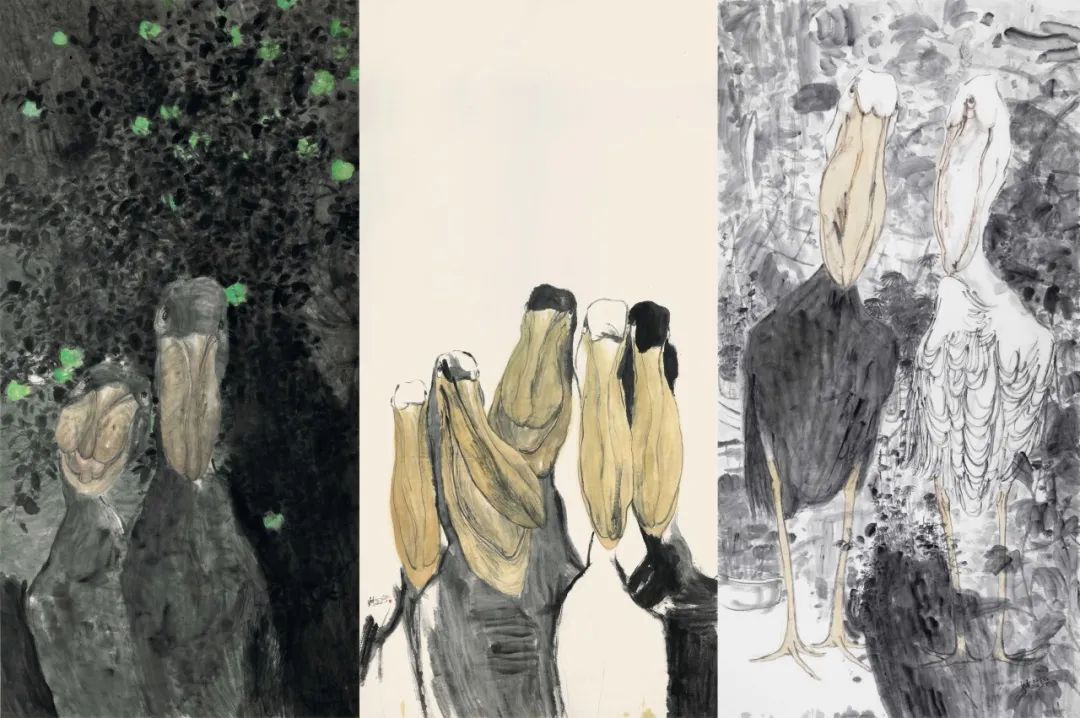
▲《憨笑》 Simple Laughter
纸本水墨 Ink on paper
369x248cm 2023年
一旦艺术家直接面对世界的混杂性与生命的普遍危机,鹳鸟的自然性与人为的造作性,就形成了强烈的对比,就打开了反思的深度,并向着未来敞开,大伍把不同的时空,鹳鸟的气候迁移与人类自我囚禁的空间,进行跨时空的对比,形成天马行空的讽喻图景,气球与方舟,人类过去与未来的奇妙连接,小丑的好奇,童年的航天梦,以超现实的方式组合起来,这是水墨何曾梦想过的时空?
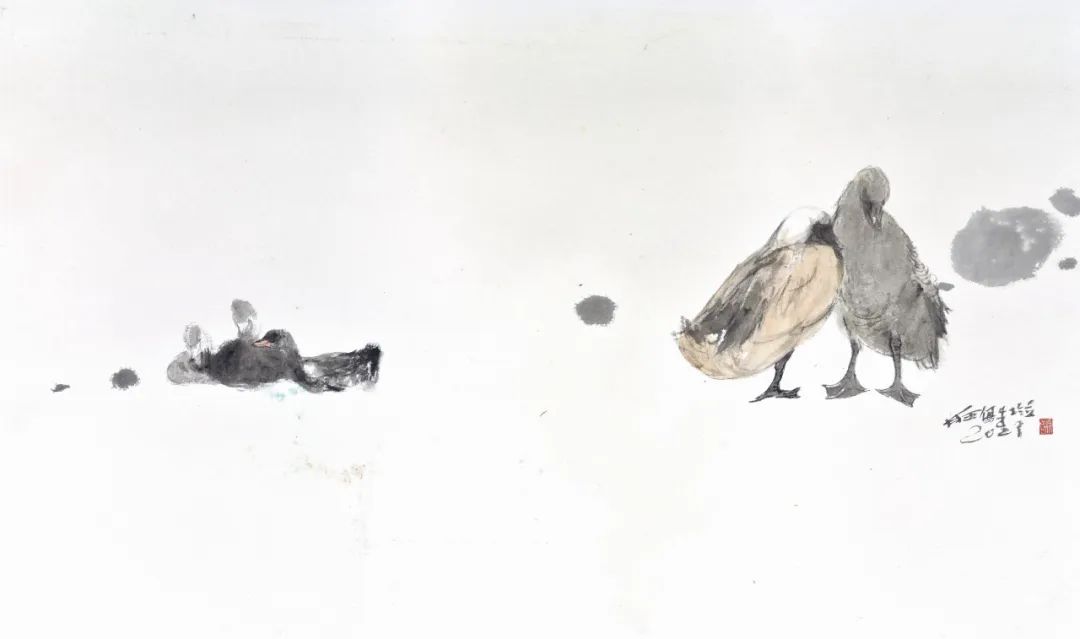
▲《鸟岛记事—04》
Notes from Bird Island—04
纸本水墨 Ink on paper
38.7x64.5cm 2023年
而在艺术表现手法上,艺术家并没有放弃笔墨的精微与线条的表现力,玉质的触感,色彩的热烈与强度,传统的精髓以反转的方式得以保留,又彻底打破了画种的限制,回到儿童的天真,又具有科技时代视窗的并置穿越感,而尤其最为可贵的是,其幽默与讽喻结合的超现实想象力,来自于内在生命无比强烈的书写自由感,是生命“第二次出生”的美妙表达!
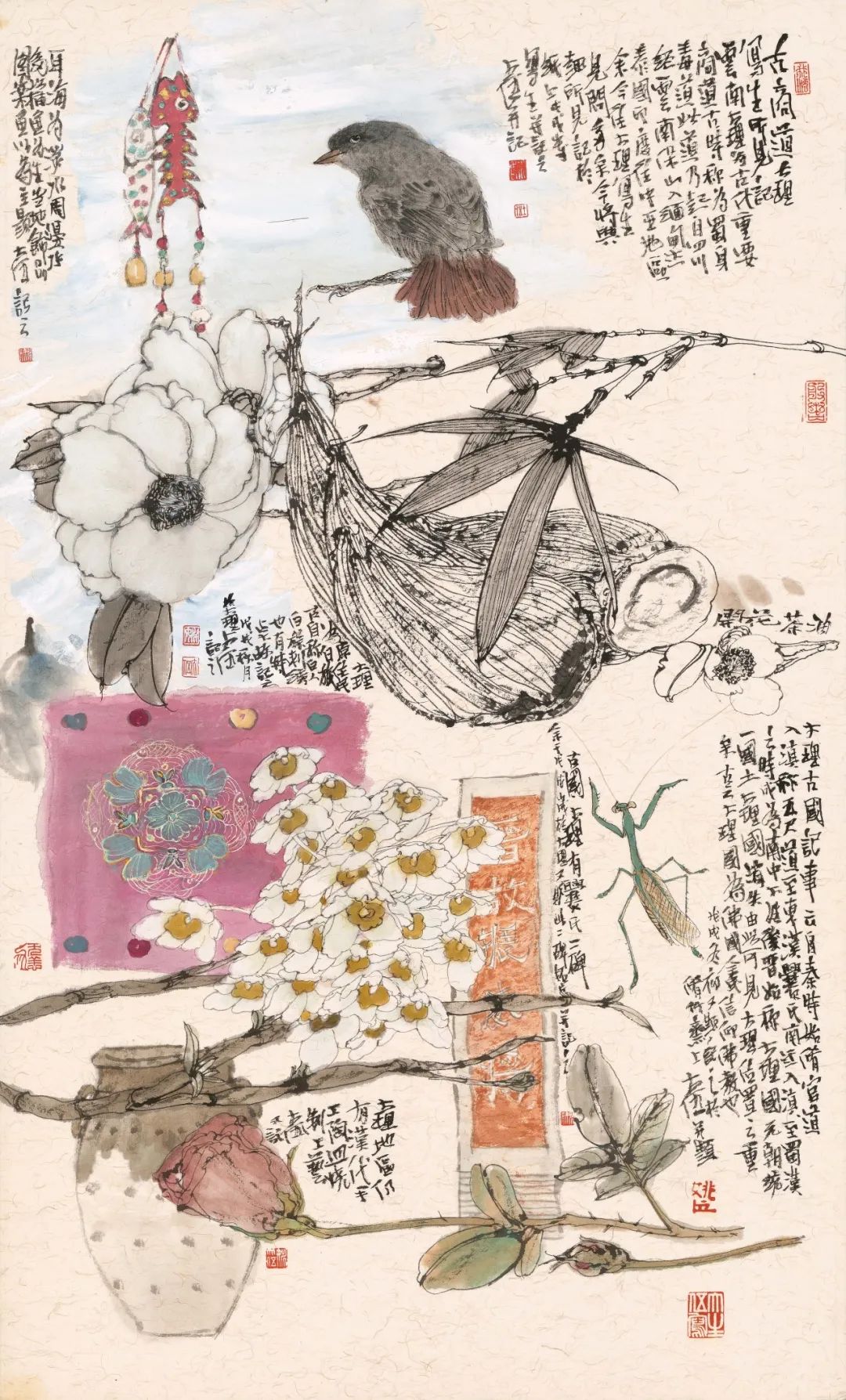
▲《大理记事》 Dali Chronicle
纸本水墨 Ink on paper
39x65cm 2019年
这让我们对于姚大伍先生未来的绘画充满了期待,如此具有综合性与广阔性的水墨文本,势必改变当前水墨绘画的格局,使之具有当代的历史性与文明的反思性,以及对于未来科技的接纳,当大伍寻找玄奘法师的踪迹,他的内心已经向着世界与文明敞开,向着某种超越维度进发了,其未来的前景与自由的想象,将不可限量!
(文/夏可君)
The painting text of Yao Dawu:
Surreal Combination of the Future World
The so-called ink and brush must keep pace with the times, as ink painting must integrate two dimensions. On one hand, it involves rewriting the historical images and aspirations of individual lives—discovering the life history of inner journeys and even emotions with traces of past memories. On the other hand, facing the spiritual crisis of the era and even scientific and technological advancements, it imparts new reflective forms and artistic languages. Only art confronting life's challenges and technological advancements truly expresses authenticity. The artist's individual cultivation and historical depth relate to the former, while the artist's moral conscience and artistic imagination relate to the latter. A mature artist inevitably forms a personalized construction of time and space.
In some recent representative works by Mr. Yao Dawu, especially the monumental piece "Bamiyan Buddha Sculpture Chronicle," created in 2018 during his solitary journey along the Buddhist route into China, we witness a departure from conventional techniques. He completely confronts the historical traces beyond life, opens his heart, and narrates individual sentiments. Different historical images and individual insights from various eras are juxtaposed through sketching, painting, ink, oil, improvisation, and collage—a combination that is both astonishing and rich in internal resonance. Ink painting thoroughly absorbs classical images from art history and global life experiences. His recent work, "Confused Time - Traces," constructs a surreal future world with bright colors and vibrant lines, portraying a childlike playground. It expresses the desire for life's "revival" and "regeneration" after the pandemic, endowing ink art with an entirely new realm.
The two series of works in this exhibition allow us to see the unique logic of image construction and profound spiritual reflections by Mr. Yao Dawu. That is, painting is not just painting; ink painting aims to return to the textuality and historicity of the world. It has a comprehensive nature across time and space, integrating visibility and readability, moving towards reflexivity and a sense of the world. The mask-like nature of life and the metaphorical imagery, writing one's own book of life and the world, constructing historical painting texts and surreal world images—Yao Dawu's breakthroughs and contributions to ink art declare a second birth of art.
Starting from the textuality of painting, Mr. Yao Dawu's art breaks free from various existing paradigms of modern ink art. This is because ancient Chinese ink art was not about creating a single painting; it was inherently intertextual—combining painting with calligraphy, images with poetry, mounting with inscriptions, and collecting with intertextuality. Chinese ink artworks can expand and grow, not limited to a single painting or constrained by a particular style. It requires artists to have the courage to break self-boundaries and enter the grand narrative of history. In 2018, Dawu realized his long-nurtured aspiration, traveling to Afghanistan to trace the journey of the master Xuanzang seeking enlightenment in the Western Regions. Crossing ancient lands, revisiting the dual traces of nature and history in the dryness of the desert and the moisture of the soul, he reconstructed the connection between individual and Buddhahood, forming a resilient and broadened perspective. While the former faced harsh living conditions, the latter dissolved countless illusions of human nature. This led Dawu to completely change his previous notions and methods of ink painting, collaging myriad images—human footprints of belief, various classical symbols—in a single artwork, seemingly simultaneously unfolding the intrinsic scroll of history.
From this point onward, the world is a book, and the heart is also a book. Painting is about "combining" the different historical traces and hidden sentiments of life—different scenes, times, cultures, Chinese characters and images, maps and mathematics, Buddha statues and spaceships, earth and sky, all juxtaposed. Therefore, painting becomes a book of the world, a book of life, and a book of the future.
The extensive absorption and resilient steps reshape the character of life and the style of painting, corresponding to the contemporary situation of our "mixed modernity." China's reform and opening up over the past 40 years have shifted the country from a traditional agricultural civilization to modern urbanization and individualization, entering the globalized era of virtual networks. Hence, ink painting is not only about traditional brushwork and individual artistic styles but also involves the spatiotemporal juxtaposition and free traversal of the internet age. However, it cannot be merely visual replication; it must incorporate the unique life paths and heart traces of individuals. Without the singular strokes of individuality, art loses its value.
Ink art must activate its absorptive and textual nature, shifting from painting to text. With such openness and reawakened vitality, along with an understanding of art as textuality and universality, when facing the pandemic crisis of the past three years, Mr. Dawu sees another aspect of the world. This is indicated through flying storks, subtly implying the pathology of life by placing masks on these animals. Similar to how humanity has been forced to wear masks in the past three years, the overlay of these life images symbolizes the loss of the original face of life. We all wear masks; we must imagine another kind of humanity. By overlaying these storks with different scenes, the artist reminds us of the Baroque-era Dutch painter Bosch's "Garden of Earthly Delights," a satirical encyclopedic world view juxtaposing scenes of different life states. Dawu's stork series paintings during the pandemic juxtapose many storks with human daily scenes, seemingly abrupt but actually conveying a sense of symbiosis in the world, emphasizing the inseparability of human and natural life. These homeless storks represent the truth of life! Whether it's the juxtaposition of storks with innocent scenes of children or the peculiar juxtaposition of traditional bird-and-flower paintings with figures, it all reflects the previous textual expression in painting.
Once an artist directly confronts the complexity of the world and the universal crisis of life, the contrast between the naturalness of storks and the artifice of human intervention creates a profound reflection. It opens up towards the future. Dawu juxtaposes different times and compares the climate migration of storks with the self-imprisonment of humans, creating a whimsical metaphorical scene across spacetime. Balloons and arks, the marvelous connection between human past and future, the curiosity of the clown, childhood dreams of space travel—all are combined in a surreal way. Is this not a spacetime that ink art has ever dreamed of?
In terms of artistic expression, the artist has not abandoned the subtlety of brush and the power of lines. The jade-like texture, the warmth and intensity of colors, the reversal of traditional essence are preserved, while completely breaking the constraints of painting genres. Returning to the innocence of childhood and having the juxtaposition and traversal sense of the technological era, the most valuable aspect is the surreal imagination combined with humor and satire, emanating from an intense sense of internal life's liberating expression—it's the wonderful expression of life's "second birth"!
This fills us with anticipation for Mr. Yao Dawu's future paintings. Such comprehensive and expansive ink art texts will undoubtedly change the current landscape of ink painting, infusing it with contemporary historicity, reflective civilization, and an acceptance of future technology. As Dawu searches for the traces of Master Xuanzang, his inner self has already opened up to the world and civilization, progressing towards some transcendent dimension. The future prospects and boundless imagination will be limitless!
(By Xia Kejun)
画家简介
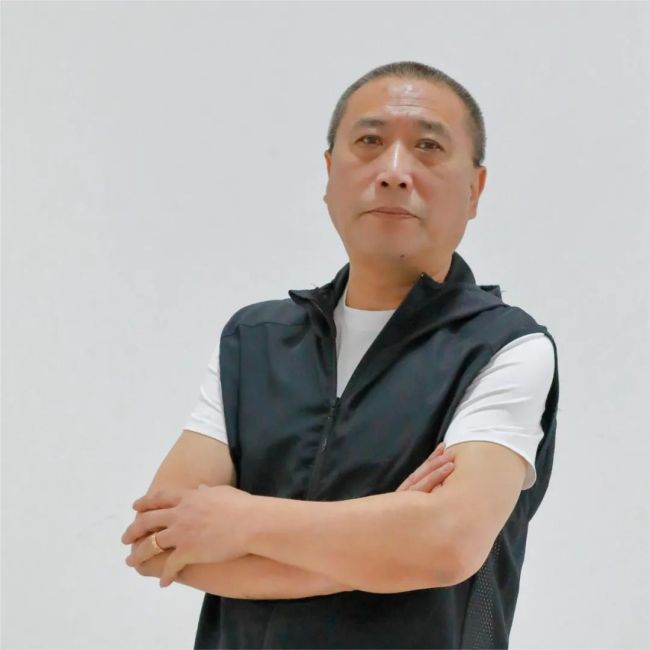
姚大伍
1963年生于北京
2006年调入北京画院
2016年调入中国国家画院
现为中国国家画院艺委会委员、研究员
一级美术师
中国传媒大学博士生导师
中国美术家协会会员
中国画学会理事
